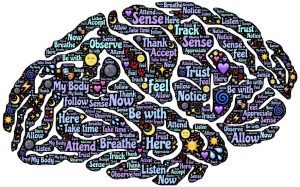Alcohol is fun and cool.
Everyone drinks alcohol; why shouldn’t you?
Drinking alcohol is not a big deal.
You won’t drink daily.
Are these statements familiar to you? Have you said these to yourself, or has your friend tried to convince you to take alcohol using these phrases?
Not only that, movies and your favorite TV shows may have succeeded in convincing you that taking alcohol enables you to enjoy teenagehood. They depict that alcohol is equal to happiness.
Deciding whether you’ll experiment with alcohol should not lie with your friends or the movies you watch. Truthfully, consuming alcohol is a big deal and can be a challenging habit to drop in the future.
It’s essential to carefully weigh the pros and cons of taking alcohol and its effects on your health and behavior. Today, ParenTeen will explain four facts to consider before you engage in underage drinking. Afterward, you can decide whether it’s worth adopting the habit.
1- Alcohol is a Depressant

Alcohol as a depressant may come as a surprise because you’ve seen people acting wild while intoxicated, or you may have felt alcohol lift your moods when you took it.
It is also known to cause increased heart rate, alertness, and aggression, and you may assume it will keep you in that state. But it doesn’t. The stimulating effect is temporary.
Medically, alcohol is categorized as a depressant, although it has a stimulating effect. The amount a drinker takes determines the depressing effects they will experience later.
For example, most people drink initially to loosen up, mask their fears, and help them engage in various activities. After a short while, they begin to experience the depressing effects that result in:
- Slurred speech
- Loss of coordination
- Blurred vision
- Reduced reaction time
- Slow breathing
- Loss of consciousness
- Dizziness
- Loss of memory
Studies have shown that people initially drink to experience excitement, but as the body becomes dependent on it, they drink to benefit from the sedating effects that temporarily help them deal with anxiety and life challenges.
The downside to drinking as a problem solver is that it causes more issues because you have to consume alcohol often to deal with simple life challenges.
As a teenager, you may tell yourself that you are taking alcohol to appear cool and have fun, and you won’t go down the addiction path. But, the reality is that alcohol affects your central nervous system, and you have no control over the changes it causes that lead to alcohol addiction.
The next time you want to take alcohol for fun, remember that it is also a depressant, and this characteristic sets the foundation for alcohol addiction.
2- Alcohol Leads to Dependency

Alcohol dependence can be defined as the need to drink alcohol to function normally. It is characterized by tolerance, which is the need to drink more to get the same effect. At the same time, you experience uncomfortable withdrawal symptoms when you stop drinking for a while.
Alcohol dependency causes you to be psychologically, physically, and emotionally reliant on alcohol. It means you have to drink even when you understand its negative effects on your body.
Alcohol dependency is different from alcohol addiction in that dependency implies that you cannot study or work without alcohol in your system, but in addiction, you can function without taking alcohol for a short while, but you have to take it at some point.
As a teenager, your parents and guardian shield you from consuming too much alcohol because you fear the consequences and don’t want to lose their trust. So, alcohol dependence or addiction may take longer; until you leave home for college or live on your own. The sad fact is that your body currently registers the alcohol you take, and studies have shown that most adult alcohol addicts were underage drinkers.
Teenagers who start taking alcohol early are more likely to develop alcohol dependence later in life—National Institute on Alcohol Abuse and Alcoholism.
3- Alcohol Hangover is your Body Complaining
An alcohol hangover is a summarized version of the symptoms a person experiences after taking alcohol. Your body registers that something unusual entered your body and caused a disruption to your normal bodily functions.
Most symptoms subside within a day, but others last more than 24 hours, depending on your tolerance level, frequency of intake, food and water intake before and while drinking, genetics, and type of alcohol. The table below shows you some hangover symptoms, their effect on the body, and the organs affected.
| Hangover Symptoms | How Alcohol Disrupts the Body | Organs Negatively Affected |
| Dry mouth, excessive thirst | Alcohol causes dehydration due to increased urination | Most organs, including kidneys, skin, and brain |
| Vomiting, Nausea, Diarrhea | Alcohol irritates the gastrointestinal lining causing increased acid production | Stomach, duodenum, intestines |
| Headache, irritability, muscle weakness | Alcohol alters your body’s electrolytes levels, such as sodium and potassium | Brain, muscles, blood vessels |
| Drowsiness, tiredness, passing out | Alcohol prevents your body’s sugar production leading to low blood sugar levels | Most organs, including the brain and muscles |
| Poor sleep quality, inability to focus | Alcohol disrupts the sleep center in the brain, causing disturbed sleep; you may feel drowsy afterward | Brain |
From the above table, it is clear that God created your body to function in a specific way and made certain foods fit for consumption and not others.
In His wisdom, He made your body react to foods or drinks that alter normal functioning and, therefore, should be avoided.
The negative effects of alcohol on the human body have been proven by the long list of illnesses it causes, such as liver problems, diabetes, some cancers, stomach ulcers, high blood pressure, kidney issues, and abnormal pregnancies.
As you plan to indulge in alcohol, consider your organs and the effects they may have on your body in adulthood.
4- Alcohol Impairs Your Brain Function; Even When Sober

Numerous research studies have established that prolonged alcohol intake causes brain shrinkage. Even if you are a mild to moderate drinker, alcohol’s effect causes reduced cognitive functioning, which is the inability to acquire, store, retrieve, and use information in your brain.
In adults, it causes poor job performance, while in teenagers and young adults, it interferes with learning and academic achievements. That’s why the main sign your parents or teachers notice and cause them to ask if you are taking alcohol is poor performance.
You may study as you used to, but as you continue taking alcohol, your brain cell’s capacity to store and retrieve what you’ve read reduces with time.
This brain change explains why a student who passed well in high school and overindulged with alcohol in college performs poorly in the final year exam. Other alcohol-related brain impairment includes:
- Dysfunction of the frontal lobe involved in thinking, problem-solving, planning, and emotions.
- Overall brain changes due to the effects of alcohol-induced liver disease, causing psychiatric symptoms such as mood changes and confusion.
- Alcohol interferes with Vitamin B1 absorption causing deficiency that leads to blurred vision, confusion, and poor balance.
- Loss of short-term memory and inability to store new information
- Interference with the brain area that controls nerves, leading to frequent numbness, pins and needles, or mild pain in your hands and feet.
Ask yourself, is being cool, having alcohol-related fun, and pleasing your friends worth risking experiencing these long-term side effects? There are many ways to have fun as a teenager that don’t involve taking alcohol.
Your friends will come and go, but you only have one body to use. Choose wisely.
Frequently Asked Questions
Will my body return to normal after stopping alcohol intake?
Yes, your body can repair itself once you completely stop taking alcohol and give it time to heal. Complete recovery occurs for those who were mild to moderate drinkers. Moderate organ damage may remain for prolonged heavy drinkers, but medical care will help them cope with the damage that may affect normal functioning.
What causes a teenager to take alcohol?
- Influence from social media, TV shows, and friends
- Cope with stress at home or school
- Drinking culture at home and community
- Annoy their parents
- Fit in a peer group
- Avoid dealing with the personal fears
Where can I learn more about alcohol and other substance abuse?
ParenTeen Kenya offers training that teaches teenagers about alcohol and substance abuse. We teach them about their harmful effects and what they can do to stay safe and avoid becoming addicts.
Images courtesy of Pexel and Unsplash
Jane Kariuki is a devout Christian, Clinician, Psychologist, and founder of ParenTeen Kenya. She authored an exceptional training manual used in her teens’ workshop and an instructional guidebook for her parenting classes. If she is not training, blogging, or counseling, Jane loves to spend time with her sweet husband and three children.





[…] young people turn to substances like alcohol or drugs as a way to cope, but this only makes things worse in the long […]